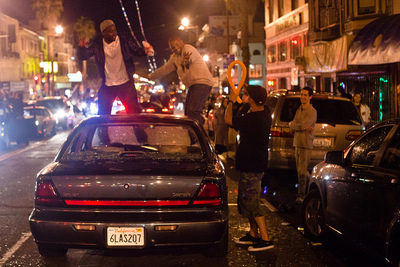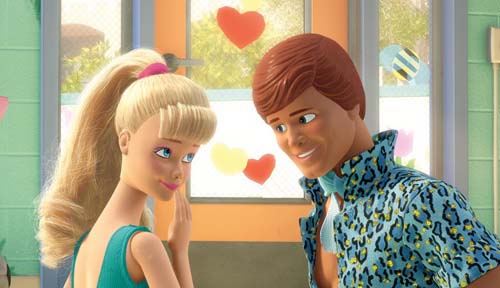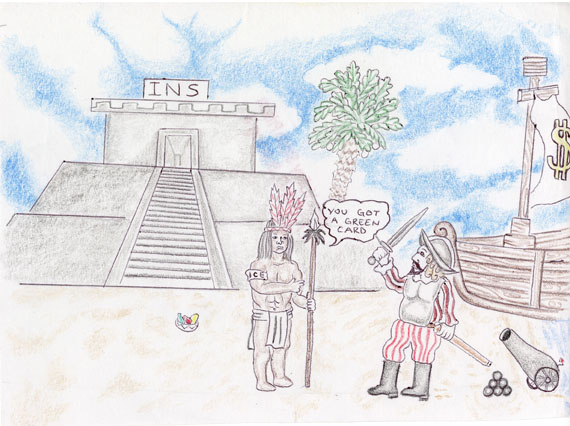Hip-hop can be a very powerful weapon to help expand young people’s
political and social consciousness. But just as with any weapon, if you
don’t know how to use it, if you don’t know where to point it or what
you’re using it for, you can end up shooting yourself in the foot or
killing your sisters and brothers.” – Assata Shakur
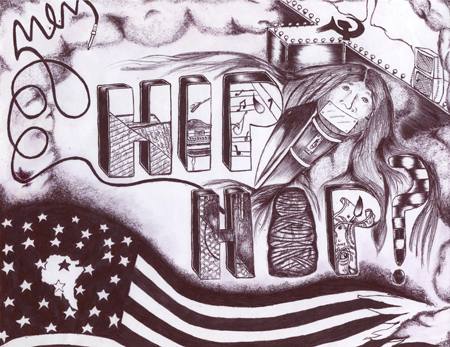
There are four main elements that make up what hip hop culture really
is: Break dancing, DJing, MCing and Graffiti art. Each element plays a
major role in hip hop. This beautiful culture originated in the Bronx,
NY from the oppressed lumpen proletarians. The music from this culture
was diligently expressed through MCing (rapping) about oppression and
the conditions the oppressed people were going through in this
capitalist decadent society. It was not about money, cars, jewelry and
negativity but as the years went by and white capitalist businessmen saw
a fortune in this culture that they could exploit the voices that
created hip hop were greatly silenced.
The common refrain of many submissions we got for this issue of
Under Lock & Key was that “Hip Hop is Dead.” But the
reality is much more complex, and we are not ready to dismiss hip hop.
The objectification and commodification of culture often signifies the
end of its existence as a culture, as Fanon argued. However, in the
height of imperialism, where the capitalists have learned to fashion
their products to niche markets, all cultures will be commodified, and
yet the oppressed still need a culture to call their own.
The reason why MIM(Prisons) is focusing on hip hop in this issue on
culture, is that hip hip came from the oppressed nations in the u$.
Today, “hip hop” is pretty much considered synonymous with oppressed
nation youth culture even as that culture continues to evolve in many
different ways. This is true in the united $tates, but also true to an
extent in many parts of the world today.
We put our hope in the oppressed nations because of their objective
interests in progressive change. That interest comes through in hip hop
culture, as much as the white corporate media and its white consumer
audience do to discourage that. Still the mainstream acts like all you
need is a certain type of a beat in a commercial and it’s hip hop. Or
dress your employees a certain way and it’s hip hop.
In their day, the
Black
Panther Party criticized Black bourgeois elements who fetishized
pieces of African culture with no context as “pork chop nationalists.”
There was no connection to a real people with an existing lifestyle. The
Panthers were greatly influenced by Frantz Fanon, who wrote in an essay
entitled “Racism and Culture”:
“Exoticism… allows no cultural confrontation. There is on the one hand a
culture in which qualities of dynamism, of growth, of depth can be
recognized. As against this, we find characteristics, curiosities,
things, never a structure.”
Hip hop developed as a living, dynamic life of a people; oppressed
people in north amerikan ghettos. As we’ll touch on below it is still a
living evolving culture that has been both adopted and adapted by people
around the world. But before going global, hip hop culture was
commodified by white record owners for white consumers. They sold this
exotic culture to white youth looking for rebellion and excitement.
Decades before, thousands of white youth gave money and support to the
Panthers to express their desires to challenge the dominant culture and
status quo. With hip hop, corporate amerika could sell a much more
sanitized and safer version of Black rebellion to whites. And while
there were benefits in terms of the building of public opinion around
the struggles of the oppressed, this was soon drowned out in what became
a new form of cooning - reinforcing racist ideologies.
Commodification of Hip Hop
Hip hop culture began in the late 1970s, but it wasn’t until the middle
to late 1980s that the cultural life and expression of hip hop grew to
influence youth throughout amerika and the world.
During the late 1980s and early 90s, the culture continued to thrive. In
this era, Black and Latino youth further developed their voices through
hip hop to express their anger, fears, ideas, art and frustrations
within the dominant white-oppressor culture, with its police brutality
and poverty.
Hip hop culture isn’t just about the music, it’s about a lifestyle -
from the clothes we wear, style of hair, taggin’ rail cars and walls
with radical art and graffiti, unity and more. It’s a culture of
resistance.
As Immortal Technique wrote in his article,
“Gangsta
Rap is Hip Hop” a few years back, what was called Reality Rap in the
early years of hip hop was a reflection of the conditions that the MC’s
saw around them. These images were influenced by machismo and other
viewpoints that were part of the survival techniques of those coming up
in that environment. As survival also required recognizing that the
system does not work for us, this Reality Rap was a reflection of the
mass revolutionary spirit that had fueled the Black and Brown power
movements of the previous generation.
The first response from white amerika was predictably negative, but the
amount of attention given to hip hop quickly escalated as fears rose.
There was a reason why the George HW Bush and Bill Clinton
administrations spent so much time disparaging artists like 2pac and
Ice-T. Someone was telling Dan Quayle and Tipper Gore to carry out their
censorship campaigns. (see
Hip
Hop in the Scopes of the State)
To counter their critics, rappers said they were merely reporting the
truth. It is true that the rapper has usually served as a block
reporter, but there are two problems that have skewed this reporting.
The first is bourgeois views of “objective” reporting, that pretend that
what is reported and how it is reported could be somehow outside of
class struggle. This view allows the oppressed to report on conditions
thru rap without taking an approach that serves our struggle. The
attitude is “this is just how it is”, which leads to acceptance and
reinforcement of the status quo.
This becomes an even bigger problem with the pressures from an industry,
which tries to protect its bourgeois interests. This brings us to the
second problem: the block reporters who make it are the ones reporting
in a way that sells to white youth and please white corporations.
Coming from the depressed ghettos of the 1980s, flooded with crack
cocaine by the CIA, there was no question of whether or not to become a
professional rapper if the opportunity presented itself. As Tupac rapped
in his song Don’t Stop, “If I wasn’t spittin’ it’d be prison or
death/This rap game all we’ve got left.” Yes, a lot of us found a way to
eat, but the result was a lack of potency in the music and a
watered-down culture where cars and ice are the motivating factor. It is
a culture that is teaching our youth that it’s all about them (as
individuals). That it’s cool to be a dope fiend (sippin’ syrup, etc.)
and to be victims of HIV/AIDS (it’s ok to have multiple sex partners,
without ever mentioning protection). Is there any wonder why the highest
rates of HIV/AIDS are among Blacks and Latinos between the ages of
13-24?
White-owned corporations saw a profit to be made and stepped in to
co-opt the movement. They became owners of record labels and put up
money so these impoverished and oppressed people could sell their soul
and music for crumbs while these CEO’s got millions upon millions of
dollars.
With the help of the rappers, the record labels promoted a one-sided
image of oppressed youth, an image that has been pushed on the oppressed
for hundreds of years - one of uncontrollable libidos, violence,
substance abuse and general barbarism. They did this through lyrics
about smoking crack, robbing and shooting other Blacks and Latinos in
oppressed communities, misogynist raps and raps with no substance. We
started to stray away from the four elements and this type of hip hop
started to negatively influence the youth and poison their minds. While
culture reflects life, it also influences it. And arguably, the
corporatized thug image contributed to the thousands of deaths that
plagued southcentral Los Angeles and other amerikan ghettoes in the
1990s.
Hip Hop is Dead until it takes up revolutionary politics
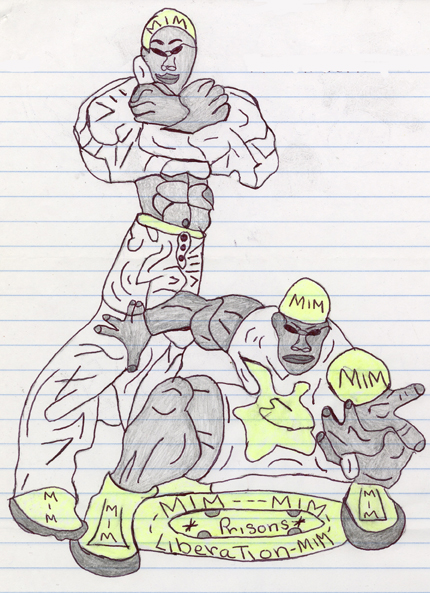
So with this contradiction in the culture of the oppressed came total
destruction of the originality and with this concrete analysis there
must be change. Like comrade Lenin once said, “concrete analysis of
concrete conditions is the most essential thing in Marxism, the living
soul of Marxism.” We must regain the true culture of hip hop, which is
based in the real struggles of the people and helps to teach, empower
and unite the masses. This culture can be used to ignite the lumpen
proletariat to support the revolutionary cause,
like
Mao once said, “Revolutionary culture is a powerful revolutionary
weapon for the broad masses of the people.”
Culture is an essential element of the history of a people, and it’s
social development. Culture in general, and hip hop culture in
particular, plunges its roots into the base of the material reality of
the environment in which we live in the hoods and barrios and it
reflects the organic nature of society, which is more or less influenced
by the dominant white society and culture of our oppressed communities.
Currently the revolutionary side of hip hop is not the dominant aspect
of the contradiction with the corporate/oppressor side. Amilcar Cabral
once had this to say about culture:
“Study of the history of liberation struggles shows that they generally
have been preceded by an upsurge of cultural manifestations, which
progressively harden into an attempt, successful or not, to assert the
cultural personality of the dominated people by an act of denial of the
culture of the oppressor… it is generally within the cultural factor
that we find the germ of challenge which leads to the structuring and
development of the liberation movement.”
We saw this germ in the Reality Rap two decades ago. If hip hop is to
transform into a true vehicle for social change, we must demand that our
artists keep it a hundred and give us more analysis in their music. Stop
promoting the use of addictive narcotics, that they become more active
in our communities, and give our youth the encouragement to study,
unify, and resist oppression. Hip hop needs to reflect the struggle, and
push it forward. If they fail to do this, hip hop remains sterile and
dead.
Hip Hop as Reflection of Amerikan Culture
During the 1990’s, people like Dolores Tucker and Tipper Gore earned the
loathing of the booming hip hop culture as they targeted it for
censorship and blamed it for the moral depravity of oppressed people.
There was a lively debate around whether art reflected life or the other
way around. But the answer to those involved was clear: people didn’t
start rapping about murder, drugs and misogyny because they were trying
to corrupt the youth. The youth were corrupted by a system that did not
provide them with positive outlets and this was reflected in hip hop,
both for good and for bad. Everybody knows censoring rappers isn’t going
to improve the hood, but improving the hood will change what people are
rapping about.
Even after its takeover by white-owned corporations, hip hop continues
to be under fire for its misogynistic, materialistic, explicit content
and for delivering negative messages to today’s youth. What they did is
sanitize the rebellious voice of the oppressed, while maintaining the
negativity as a form of pseudo-rebellion to reinforce racist stereotypes
of what oppressed nation youth are all about. Yet, upon deeper
examination, one tends to see that the messages are merely the same ones
being transmitted to the society at large by the institutions which
govern society.
The parallels between the ideas propagated through the mass media and
other sources; and the ones rapped about on the radio by recording
artists are not hard to recognize. While this society proposes to thrive
on such “rights” as “freedom of speech” and embraces such abstract
concepts as individualism, materialism, and using sex to make a profit,
it lambasts and condemns artists who are the products of such defunct
ideas and who have chosen to endorse and promote them for monetary
gain–similar to their capitalist counterparts and employers, only
creatively set over catchy beats in rhyme form.
While the hip-hop/rap culture is made up primarily of lower-class, urban
youth, generally from the New Afrikan community, the question that
arises is: Why are these destructive, negative values so unacceptable
now? It seems that as soon as these inner-city youth find a way to use
this society’s own value system to their benefit, and use their
experiences and conditions of poverty, drugs, and crime as an avenue to
create material wealth, they are demonized for their efforts. “Rap
music” is condemned, rather than society as a whole. This theme is a
regular refrain for many rappers who tell their critics through rhyme,
“I am what you made me.”
While rappers are being chastised for glorifying violence and
criminality, the chastizers fail to confront the underlying causes of
such crime and its solution, instead placing the blame on rap culture.
From a young age, youth are taught by society that accumulation of
wealth is the desired goal of life, to look out for yourself and obtain
as much as you can. At the same time – through acts of war at home and
abroad – our country reinforces the idea that during the quest for the
“almighty dollar” any means may be employed to get more money, including
violence, murder, and deceit. When a person not from a privileged
upbringing and background employs these same tactics, even for the same
objectives, they are labeled “criminals” and are subject to
incarceration and, in some cases, death. The laws that govern this
country blatantly display the fact that they were made to protect the
privileges of the upper-class and oppressor nation at the expense of the
lower-class and oppressed nations.
If we want to get to the root of the problem, our attacks shouldn’t be
aimed at a rap culture that developed from the harsh conditions of this
society and which only reflects the same backward ideas and values that
have been indoctrinated into the masses since birth. Instead, our
attacks should be concentrated at a capitalist system that
institutionalizes these degenerate values and ideas, and the ugly
conditions it has consequently created in this country. Only when we
begin to confront the root causes of crime, poverty, unemployment and
racism will we be able to teach and educate our youth, and society as a
whole, to new positive and progressive ideas and values, based on people
helping and caring about other people-in one word: socialism. Anything
short of this is a failure to confront the real issues and is simply a
step backward.
Hip Hop Lives in Palestine, Senegal, Somalia…
When hip hop blew up in the amerikan market, it was only natural that
the capitalists tried to push it globally, as much of the Third World is
so brainwashed into worshiping anything that comes from the united
$tates as being superior. In many cases, the Third World has adapted hip
hop to their own conditions and needs though. In fact, Third World hip
hop has consciously rejected many aspects of hip hop that we are also
critical of: the killing, the misogyny, the drugs and promiscuity. Many
Third World nations are not comfortable with all that. In Muslim
countries in Africa, there are hip hop heads who very much look up to
rappers from the u$, but do not imitate much of the negative lyrical
content. (see
http://www.africanunderground.com)
There is a class difference between the Third World masses and the u$
lumpen, who have become cultural leaders globally because of u$
imperialism not in spite of or in opposition to it.
While we can be very critical of hip hop for promoting drug use,
violence against the oppressed, misogyny and racism, others want to
back-handedly criticize it for empowering the oppressed. In contrast,
revolutionary artists often embrace while redefining the gangster and
the hard images of both mainstream and underground rap music. With the
globalization of hip hop and the “I’m more hard” and “I’m more gutter
than you” personas that are even pushed by the mainstream, we’ve seen
the appearance of Third World voices with a more internationalist voice.
New York-based artist
Immortal
Technique said in his title track about the Third World, “it makes
the hood in amerika look like paradise.” Meanwhile, Somalian rapper,
K’naan, claims to be from the most dangerous place in the world and
challenges the studio gangster images of rappers in the u$ in his song
“What’s Hardcore?”:
I’ma spit these verses cause I feel annoyed
And I’m not gonna quit
till I fill the void
If I rhymed about home and got
descriptive
I’d make 50 Cent look like limp bizkit
It’s true, and
don’t make me rhyme about you
I’m from where the kids is addicted to
glue
Get ready, he got a good grip on the machete
Make rappers say
they do it for love like R-Kelly
It’s hard
Harder than Harlem and
Compton intertwined
Harder than harboring Bin Laden and rewind
To
that earlier part when I was kinda like:
We begin our day by the way
of the gun
Rocket-propelled grenades blow you away if you front
We
got no police, ambulances, or fire fighters
We start riots by burning
car tires
They looting, and everybody start shooting…
This is the kind of “Reality Rap” that the OG’s from Los Angeles used to
spit, before “gangsta” became a caricature.
A thriving Palestinian hip hop scene has popularized the slogan, “Hip
Hop’s not dead, it lives in Palestine.” This is coming from youth who
are using hip hop to express their desires for national liberation,
combating the slander being used to label their people as terrorists.
The idea of a global culture is still a new reality. But if such a thing
can exist that is really based in the lives of real people, then it must
represent the interests of the world’s majority. Maybe a culture that
arose from the oppressed in the heart of the empire, and was then
popularized by the empire itself, can be turned around by the masses to
become just that. We are currently seeing two futures of hip hop play
out. One has billions of dollars behind it, the other has billions of
people. If we can still call it “hip hop” culture in all its different
forms around the world, then we can bet on the oppressed peoples’
version winning out.









